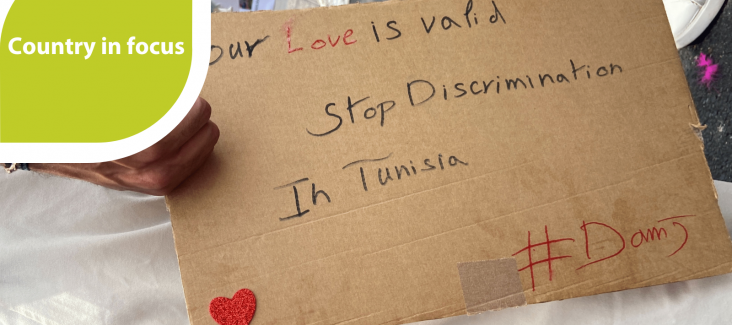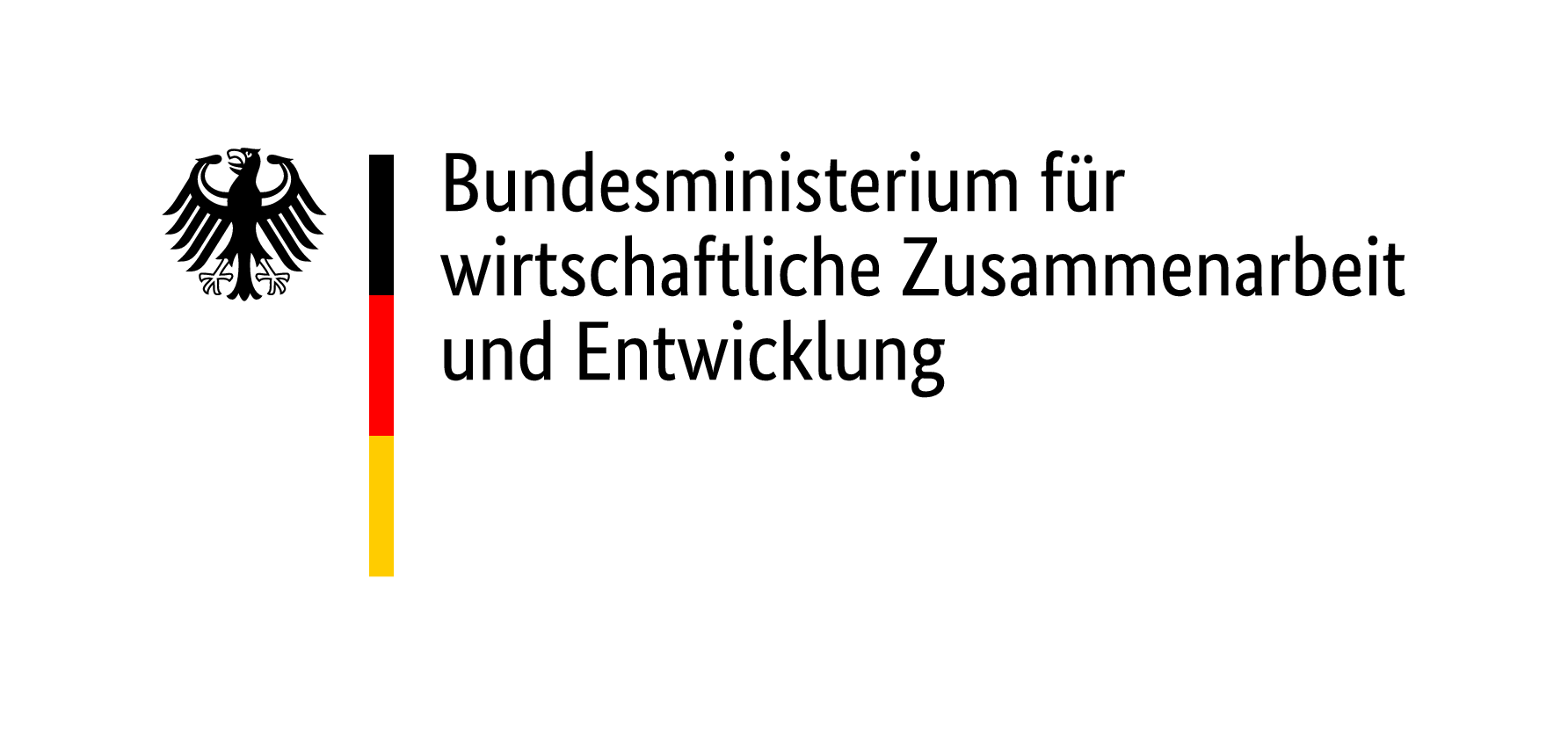Ghofran Vilquin is a dedicated advocate for justice, democracy, and human rights. With a background in International Human Rights Law and Public Policy, Ghofran's journey is marked by transformative experiences that have shaped her into a passionate advocate for positive change in Tunisia. Ghofran has made significant contributions to renowned organisations such as the International Center for Transitional Justice, the UNHCR, and the Council of Europe.
This interview reflects Ghofran Vilquin’s personal opinions and experiences and does not reflect any institutions with which she may have been associated in the past or currently.
What is the culture of political participation in Tunisian society?
Tunisia experienced a coup on July 25, 2021, when Kaïs Saïed suspended the country's parliament and dismissed the prime minister. This move sparked protests and a crackdown on opposition figures and critics of the president. The Ennahda party, which had been a major player in Tunisian politics since the 2011 revolution, was targeted in particular, with several of its members arrested.
Also watch our webinar dedicated to Tunisia and the Middle East and Northern Africa region "Democratic backsliding after the Arab Spring and protection of minorities"
The situation with political prisoners has become a major concern for human rights groups. Rached Ghannouchi, the leader of the Ennahda Party and a prominent opposition figure, was arrested last April and has been in prison ever since. In September of this year, he started a hunger strike to protest his detention and the treatment of other political prisoners. Another example is Ali Laarayedh, a former prime minister and a vice-president of the opposition Ennahda party, who has been detained since December 2022 and held without being taken before a judge. Human Rights Watch reports that there have been multiple cases of people being detained without a legal basis and without access to their families or lawyers.
Moreover, the Tunisian Journalists Union has stated that the president has become the number one enemy of free press in the country. Journalists have been facing increasing restrictions and intimidation, and there have been reports of arrests and harassment of journalists who are critical of the government.
We can’t talk about the situation in Tunisia, without mentioning minorities. Kais Saied's discourse has created an environment in which hate and discrimination are being normalised, and have put black Tunisians and migrants at risk. In a speech on February 21, 2023, Saied made xenophobic remarks against sub-Saharan migrants, saying they were a threat to Tunisia's "social fabric" and calling for "urgent measures" to stop the influx of migrants. In the days following the speech, there were reports of increased incidents of violence against black people, including assaults, harassment, and vandalism. We shall remember that in 2018, Tunisia was the first country in the MENA region to enact a law that penalises racial discrimination and allows victims of racism to seek justice. But the normalisation of hate speech at the highest level of the State since the coup, is a disturbing reminder that there is still much work to be done to eliminate racial discrimination in Tunisia.
This racist atmosphere had serious consequences on Tunisian economy, as several countries called for a boycott of Tunisian products. International investors became hesitant to invest in Tunisia, as the country's reputation for being a tolerant and inclusive society was tarnished. The relations with other African countries were deeply strained, as many African leaders expressed concern about the safety of African citizens in Tunisia.
Overall, Tunisia's image as a bastion of democracy and human rights in the region was damaged, as the country was seen as regressing in terms of racial equality.
In general, are the Tunisia legislations on direct democracy efficient?
The direct democracy legislation implemented by Kaïs Saïed in Tunisia since the coup is inefficient and limited.
The two primary tools available are authority votes, which are inherently top-down in nature. While, in theory, they allow for some level of citizen participation, they fail to provide a truly direct and bottom-up approach to democracy.
Moreover, these votes are non-binding, giving the government the discretion to act on the results. This lack of binding results fosters mistrust and disengagement among citizens. Notably, the voter turnout for the Kais Saied referendum was relatively low, with less than 30% of Tunisian voters participating.
This situation seriously questions the legitimacy of the referendum and the new constitution, which grants President Saied more power, and suggests that many Tunisians do not support these changes. They would prefer to see a more democratic and inclusive system in place.
What changes took place in Tunisian laws in 2022 and what are their implications?
Tunisia witnessed several significant legal changes in 2022, particularly in the areas of human rights and electoral law. One of the most contentious alterations was Decree-Law 2022-14, which criminalised the dissemination of "false or incorrect news or information" and has faced widespread criticism as a threat to freedom of expression.
Another significant change involves the new electoral law, which solely applied to the replacement of the democratically elected Parliament, which was dissolved following President Saied's self-coup in July 2021. This new law had the effect of severely restricting opposition parties and undermining democracy in Tunisia. Overall, these modifications have raised concerns among human rights organisations and democracy advocates, who fear that the country is moving toward authoritarianism.
Could you give us your opinion on the plebiscite (or authority-organised referendum) in 2022 from a direct democracy perspective?
The 2022 Tunisian plebiscite was not a true example of direct democracy, because historically plebiscites were never genuine democratic tools. Napoleon was famous for his use of plebiscites as a means of building support for his rule. Till this day, plebiscites are used by regimes as a way to legitimise policies that are not representative of the will of the people.
In Tunisia, while it was organised by the government as a “referendum”, the plebiscite was not accompanied by any meaningful public debate or input from citizens. The proposed constitution was drafted by the president alone, which further demonstrates that it was not a genuine exercise in democratic decision-making. In other words it was an unilateral change imposed by the presidency, rather than a truly inclusive and participatory process for citizens.
What was the role of the Assembly of People's Representatives and what its dissolution meant for citizens’ possibilities for participation?
The Assembly of People's Representatives (ARP) was Tunisia's national legislature, elected directly by the people. It played a crucial role in the country's democratic transition after the 2011 revolution, as it was the primary institution through which citizens could express their political views and exercise democratic participation. The ARP provided a crucial check on the executive branch's power and allowed citizens to hold their elected representatives accountable.
The parliamentary branch is the cornerstone of every democratic governance, as it represents the voice of the people. Its dissolution in 2021 was a major blow to Tunisia's democracy. Without a functioning and transparently elected parliament, a state cannot be not truly democratic, as it lacks the crucial element of representation and accountability. In today’s Tunisia, there is simply no way for citizens to participate in shaping the rules that govern their lives..
Do you think Tunisians still believe in democracy?
There is certainly hope for the future of democracy in Tunisia, but it will take continued mobilisation and activism to achieve it. The memory of the 2011 revolution is still fresh in many people's minds, and the hope for a better future that it represented has not faded.
Tunisians have experienced the benefits of democracy, such as freedom of expression, political participation, and more open and transparent institutions.
Now they have begun to understand that, although sometimes slow and frustrating, democracy is a preferable system to any repressive autocracy. Despite all its imperfections, democracy at least offers a voice and a stake in the future for all citizens.
On the other hand, dictatorships offer a false sense of stability and order. In fact, the promise of economic growth used as a justification for the Presidential coup, has been an empty one.
Without a doubt the economic impacts of the coup have been largely negative, and the economy has been lethargic at best. The political instability that followed the coup has made investors wary, and the government has struggled to implement effective policies to stimulate growth.
- Tourism revenues have fallen by about 40% since the coup in July 2021, according to the Tunisian National Tourist Office.
- The Tunisian dinar has lost about 20% of its value against the dollar
- Foreign investment has declined by about 25% in the same period, according to the Tunisian
Investment Authority.
- The Inflation is at rate 9% as of September 2023, compared to 5.71% before the coup.
In short, Tunisians feel they sacrificed democracy for a mirage of opulence, and they are now paying a dire price for it.
What are the prospects of regaining strong democratic institutions and trust in them?
The notion of rebuilding public trust in institutions under an authoritarian regime is unrealistic and disingenuous. It would only serve the interests of those in power, while neglecting the true needs and aspirations of the Tunisian people.
The current political situation under the leadership of President Kaïs Saïed is an aberration, and in no way reflects the ideals of the Tunisian people. It does not represent the aspirations of the people who have demonstrated their dedication to dignity and self-determination since the 2011 Revolution.
If the economic and political conditions continue to deteriorate, it will only lead to more unrest. Recent History has shown that when Tunisians feel they have nothing to lose, they eventually challenge the status-quo, and while the situation in Tunisia now is different than what it was in 2011, there are some similarities in terms of the grievances people feel and a potential for collective action against the current despot.
Tunisians have an intimate knowledge of democracy, as they essentially reinvented the concept during the 2011 revolution. And while the road back to freedom won't be easy, they have shown the world that they can fight for their democratic rights. Because people do possess a strong democratic foundation in this country, I’m confident and hopeful for the restoration of Democracy in Tunisia in the near future
This article was written in connection with the Life as an activist project. Five countries, five democracy activists, five mini-documentaries! The following video is the Life as an activist project documentary.
Mini Documentary - Hichem Mehrzi explains the realities and challenges of democracy activism in Tunisia


